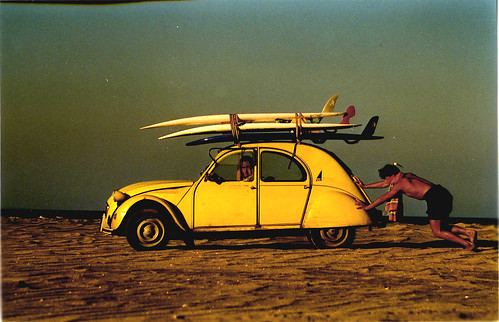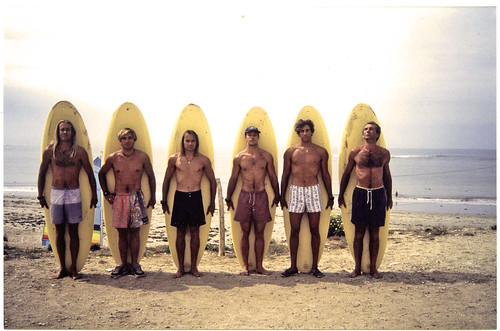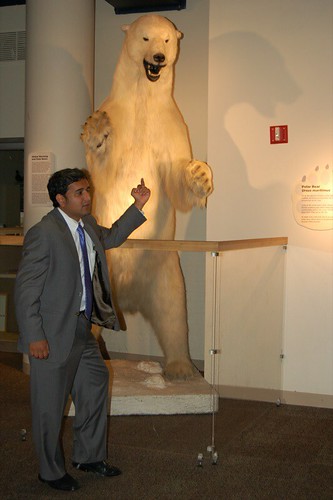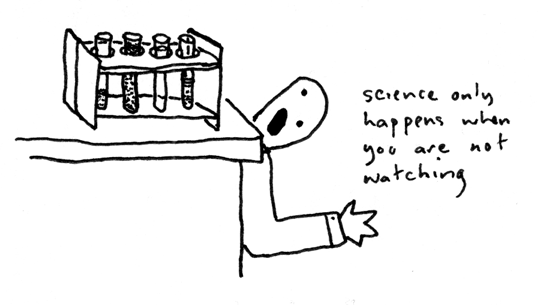NOTE: This represents the first attempt at a new feature on this blog, one that I hope is long running. I will be publishing interviews with friends, hoping to learn a bit more about where they come from, what they believe in, and what is important to them in their professional and personal lives. I hope you enjoy it.“One Night With Doctor Paul”Paul K. and I have been friends for about ten years. As I recall, we were first introduced by Andy B. when Andy recruited me to join the Ovalshow sketch comedy group at Stanford University, in the fall of 1997. At the time, to a smart-alecky sophomore, Paul, along with RM, represented the brooding genius of the show – writing and performing sketches that were arch, literary, and absurd. In those days of Nico and Mr. Eddy, he often sported a dark trench coat and a casual disregard for convention, giving Paul as much of an air of danger as could be claimed by a man who studied moral philosophy, the philosophy of science, and later, medicine.
After college, Paul, well, Paul continued to go to college. Our friendship continued and matured, over the years and across continents, as Paul completed a Master’s at Stanford, spent a year at Cambridge, and then finally settled on a medical career at Yale. Included in this time were a memorable, if ill-advised, weekend of martinis in New Haven, a week-long tour de force in London, Brussels, and Amsterdam, many evenings of dinner and drinks in New York, and two separate, rum-soaked weeks in the Virgin Islands.
Paul, recently married, and even more recently turned 30, agreed to sit down with me for my first experiment in interviewing. During the most recent of our trips to the Virgin Islands, over wine and then whiskey, on the deck of Purt-Ny-Shee, overlooking the Caribbean Sea, we talked about growing up, our friends, Christianity, becoming a doctor, and anything else that crossed our minds from two until six in the morning.
Name: Paul K.
Age: 30
Occupation: Medical student/Neurosurgery resident
Hometown: Bronxville, NY and Kingman, AZ
Family: Paul is the middle brother of three. Paul’s parents immigrated to the US from India. His father is a cardiologist and his mother took care of the family. Paul is married to Lucy G-K.
Kingman DaysPaul spent the first half of his youth in Bronxville, NY, and the second half in Kingman, AZ, two vastly different towns located on opposite sides of the country. In terms of influence, neither town is immediately obvious as heavily molding young Paul, other than his once-ardent support for Senator John McCain, and his continued support for the Phoenix Suns.
RRD: In terms of growing up do you identify more with Bronxville or Kingman or both equally?
PK: I think when I lived in Kingman, I identified more with Bronxville, but after coming to Stanford, and just to clarify, the way I conceptualize these two places Bronxville is very urbane, wealthy, highly educated, Kingman, very poor, no one goes to college, no one graduates high school, it’s out in the wilderness, and I know it doesn’t make a whole lot of sense to say, because my career trajectory is very Bronxville-ian, but, in the end, I think I identify more with Kingman.
RRD: So what about Kingman is it that you identify with?
PK: Outdoorsiness, being in the outdoors. I much prefer rural settings to cities. I like the small town, where everyone knows everybody. A little bit of the suburbanite dream where you can go live in this place where its very safe, very nice, but it’s more than that because it’s in the middle of nowhere. I may never get to do this because the kinds of jobs I am headed towards require a high concentration of technological capital, but my fantasy world, I would just move to Wyoming or Montana, just live in the middle of nowhere and just fix broken legs or whatever.
RRD: So you felt like growing up in Kingman, you, your family was really integrated with the community at large? You felt like you knew people there, you have good relationships now with people there?
PK: No, none of those things. So, why do I identify with Kingman? None of my good friends now are from high school. There are a couple of people I am still in touch with. My family, I wouldn’t really say, is part of the community, because the community is totally white. I think we were the first non-white family to move in to the community, or one of the very first. There are no Native Americans. no Mexicans, which is weird, given its location. And so, it was a very racist town, with a mixture of the congenial racism of everyday stuff, with the occasional violent, weird, bad stuff. What
do I like about that town?
RRD: What about violent weird stuff? Are there any stories there?
PK: Well, going from the least bad to the worst. I was definitely called nigger. You know, a couple of times a week.
RRD: By people in school, by people in town?
PK: Both, people in school, classmates, weirdly, some of them sort of my friends. Then by more thug-like people, I didn’t know. Then I was in one or two fights, I don’t know if they were really-raced based…
RRD: Fist fights?
PK: Yeah.
RRD: Closed fist, you punched people?
To read the rest of the interview, please click here.
 Monday afternoon I was flipping through Technorati when the Owen Wilson suicide news popped up on my screen. After a moment, I stood up, turned to my co-workers and said "I don't think I can work anymore today. Owen Wilson tried to kill himself."
Monday afternoon I was flipping through Technorati when the Owen Wilson suicide news popped up on my screen. After a moment, I stood up, turned to my co-workers and said "I don't think I can work anymore today. Owen Wilson tried to kill himself."




































